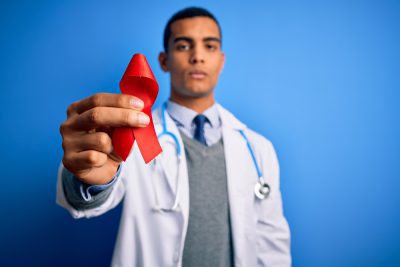
There is a new disease that is spreading across the U.S. that mimics the symptoms of HIV infection called Chagas. The disease is carried by an insect known as triatomes. The insect is also known by the name kissing bugs, assassin bugs, cone-nosed bugs, and reduviid bugs and many species of these insects are prevalent in the southeast portion of the United States. The bug is originally found in Latin America but has spread through migration to the U.S. and Caribbean. In Texas, for example, it is estimated that 1 in every 6,500 blood donors are infected with Chagas disease, compared with 1 in every 27,500 donors across the country.

If one of these insects bites you, there is a chance it may pass on a parasite known as Trypanosoma cruzi into the bloodstream. The bug normally bites a victim around the lips, which is where the name “kissing bug” derives. Once this parasite is in the bloodstream, it can cause a host of issues from gastrointestinal problems to enlarged heart, heart failure, severely altered heart rhythm, and heart attack, enlarged esophagus and enlarged colon. The disease can be spread by contact with the droppings of the bug and coming in contact with membranes, such as the eye when a person rubs their faces. The bug may leave droppings in the bedding of family pets. Infection is also possible through blood transfusions, organ transplants and, during pregnancy, from mother to baby.

The beginnings of the Chagas infection symptoms are similar to the beginning of HIV infection. An individual can often experience fever, fatigue, body aches, headaches, rash, loss of appetite, diarrhea and vomiting. Like the HIV infection, Chagas infection can lay dormant for years and the victim may be unaware they have the virus. According to Baylor College of Medicine’s Peter J. Hotez, MD, Ph.D., Chagas disease also shares these features with AIDS:
- In the Americas, Chagas is mainly a problem of the “bottom 100 million” people who suffer from at least one of the so-called neglected tropical diseases.
- Both diseases carry significant stigma. In the U.S., undocumented workers infected with Chagas disease may not seek treatment due to fear of deportation.
- Both diseases are treated with drugs that are in short supply.
- Both diseases are treated with expensive drugs.
- Lack of access to medical care complicates both the Chagas and AIDS epidemics.














